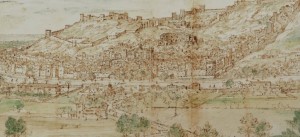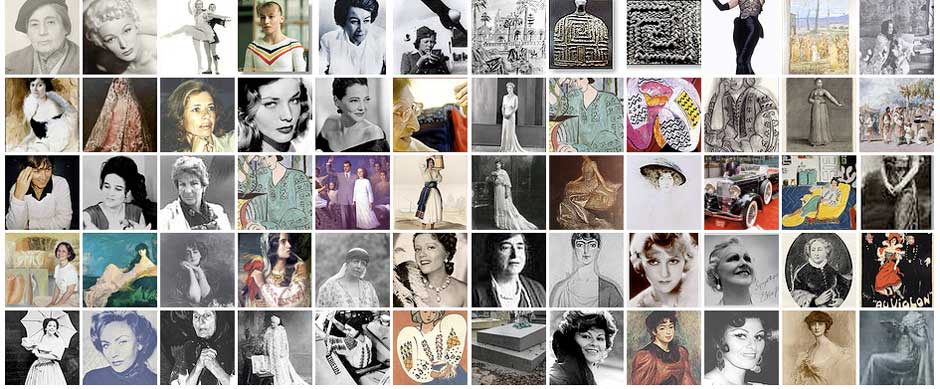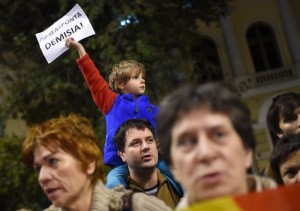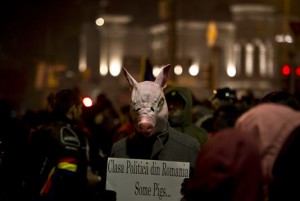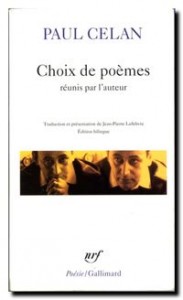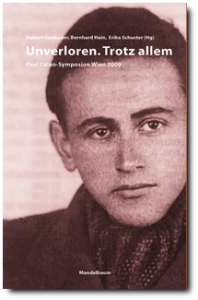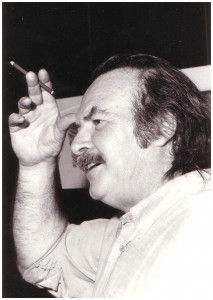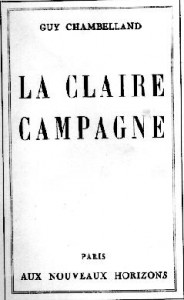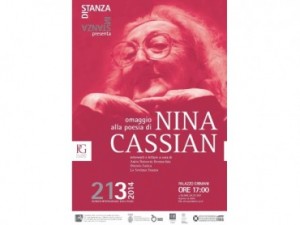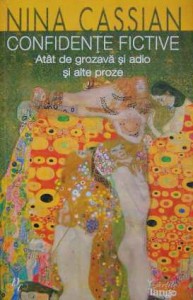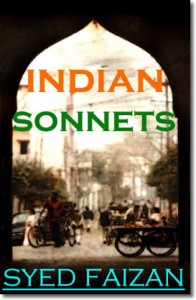Isabela Vasiliu-Scraba, „Rinocerizarea” criteriului biografic la un istoric dilematic
 Motto: „Gnosticism is a type of thinking that claims absolute cognitive mastery of reality […]. In marxism (its immanentizing form) gnosticism considers its knowledge not subject of criticism, relying (as it does) on a claim to gnosis, a special gift of a spiritual and cognitive elite”. (Eric Voegelin, Politics and Gnosticism).
Motto: „Gnosticism is a type of thinking that claims absolute cognitive mastery of reality […]. In marxism (its immanentizing form) gnosticism considers its knowledge not subject of criticism, relying (as it does) on a claim to gnosis, a special gift of a spiritual and cognitive elite”. (Eric Voegelin, Politics and Gnosticism).
„Rinocerizarea” devine posibilă după „cucerirea puterii prin modificarea mentalității, grație hegemoniei ideologice veșnic atentă ca cele spuse și publicate să nu-i fie defavorabile” (vezi Ion Varlam, Pseudoromânia. Conspirarea deconspirării, București, Ed. Vog, 2004, p.68). În formule periodic schimbate, ea perpetuează teroarea ideologică marxistă din vremea când era absolut interzis a se vorbi în public despre martirii închisorilor comuniste (vezi Isabela Vasiliu-Scraba, Moartea martirică a Sfântului Arsenie Boca) și despre milioanele de români întemnițați politic după 23 august 1944 (vezi Monumentul victimelor comunismului din Elveția, la Chene Bours, aproape de Geneva).
În 2008 „rinocerizarea” criteriului biografic s-a putut constata la un istoric recenzând Scrisorile din București, 1944-1946 trimise de Eric Tappe (1910-1992). Intr-un articol din „Dilema Veche” (Nr. 211/ 2008), Andrei Pippidi amintește relațiile englezului Tappe cu istorici de prestigiu, de exemplu cu generalul Radu Rosetti (trimis după gratii, asemenea nepotului său Ion Varlam), cu arheologul Ion Nestor (1905-1974), director al Muzeului Național de Antichități – devenit din 1956 Institutul de Arheologie al Academiei-, și cu Marioara Golescu (despre caietele ei aflate în arhiva Institutului de Istoria Artei „George Oprescu” din București vezi articolul din 16 mai 2013 scris de S. M. Barutcieff și Cristina Bogdan).
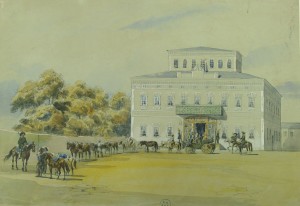
19th c. Golescu Palace – visit of Russian dignitary
„Medievalistă de mare cultură și cu o minte fermecătoare, pasionată de istorie și de arheologie” (
Dan Romalo,
Cronica getă pe plăci de plumb, Ed. Alcor, București, 2005, p.19, http://www.isabelavs.go.ro/Articole/dan_romalo2.htm ),
Maria Golescu (1897-1987) a avut inspirația de a salva prin fotografiere multe din Tăblițele de la Sinaia aflate după război în subsolul
Muzeului Național de Antichități, reproduceri pe plăci de plumb făcute dispărute în comunism și post-comunism (vezi
Isabela Vasiliu-Scraba,
Un ziarist, o filoloagă și o carte bombă: Cronica geto-dacă de pe Tăblițele de la Sinaia, în rev.
„Oglinda literară”, Focșani, Nr. 76/ 2008, p.3382).
Lumea bună a intelectualității interbelice din care făcea parte Maria Golescu îi reține îndelung atenția fostului comunist Andrei Pippidi preocupat să nu uite în articolul său dilematic și de amănunte gastronomice, precum gustul roșiilor românești de care Tape scria prin epistolele sale că sînt mult mai bune decât roșiile occidentale.
Scolit în Anglia (la Oxford) pe vremea în care numai privilegiații regimului (de teroare polițistă susținând teroarea ideologică, apud. Mircea Eliade) puteau trece cu burse dincolo de Cortina de fier, recenzentul născut în 1948 omite însă a informa cititorul „Dilemei vechi” despre arestările istoricilor care-l impresionaseră pe Eric Tappe, specialist în limba română la Universitatea din Londra, fost elev al profesorului Grigore Nandriș de la Londra (fratele memorialistei Anița Nandriș Cudla deportată de sovietici de la Cernăuți în Siberia pentru 20 de ani).
Rinocerizarea istoricilor comuniști a împiedicat timp îndelungat scoaterea la lumină a unor date istorice privitoare la uciderea după gratii, la întemnițarea și deportarea a 4 milioane de români între 1945 și 1989 (cifră a Raportului Helsinki din 1992, menționată de Magda Ursache în „Bulevarde de cenzură”). Cicerone Ionițoiu povestea că foștii deținuți erau obligați (sub amenințarea că vor „suporta rigorile legiilor din Republica Populară Română”) să semneze că nu vor spune nimic din ce au pătimit si au văzut în temnițe. Fostul deținut Ion Eremia, care făcuse fără vină 15 ani de temniță grea, a scris următoarele:
„în baza cărei legi îmi cereți să nu vorbesc despre ce am văzut și auzit în închisori? Vă este frică să nu spun mârșăviile pe care le-ați făcut? Voi spune tot.” (C. I.).
Prin inerția vremurilor de teroare ideologică sesizabilă la capitolul istoriei închisorilor comuniste (1), prezentatorul volumului Scrisori din București a „uitat” în 2008 să menționeze temnița politică făcută fără nici o vină de exact acele personalități care-l impresionaseră pe Eric Tappe în anii șederii sale de la sfârșitul anului 1944 până în 1948 la Misiunea Militară Britanică din București.
Despre detenția Mariei Golescu, condamnată la 20 de ani de muncă silnică (nu 16 ani cum apare în Enciclopedia României on-line după George Marcu (coordonator al Enciclopediei personalităților feminine din România, București, Ed. Meronia, 2012), aflăm de la scriitoarea Aspazia Oțel Petrescu (fostă studentă a lui Lucian Blaga) povestind în două pagini antologice cum a salvat-o Marioara Golescu după înghețul pe timp de iarnă la izolator.
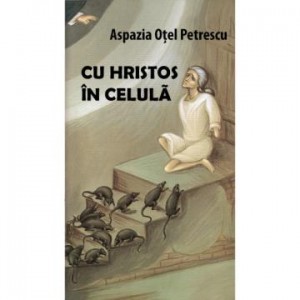
Cu Hristos in celula
Iată pasajul despre
Maria Golescu din cartea scriitoarei ajutată să scape de
„repatrierea” în URSS de mama eseistului
Marin Tarangul (1938-2010), care-i fusese profesoară la Liceul de fete din Cernăuți. Tânăra Aspazia ajunsese înghețată tun în
„camera secretului mare” unde condamnatele aveau pedepse mari :
„Văzând că picioarele mele refuză să-și revină, domnișoara Marioara Golescu m-a chemat pe patul dânsei, mi-a desfășurat picioarele din tot felul de șosete cu care au fost îmbrăcate, doar, doar se vor încălzi și așa goale, le-a aplicat direct pe epigastrul său, locul cel mai cald al corpului omenesc. Nu puteam să le retrag deoarece domnișoara le ținea stâns înlănțuite și ca să nu mă întind la o polemică pe linia sacrificiului ce-l făcea, a început să-mi povestească un episod din viața sa, cu adevărat extrem de interesant. Vocea ei plăcută, cu timbru grav, ne-a dus în însorita Italie, la braț cu Charles Diehl, reputatul bizantinolog, într-o discuție privitoare la primele mânăstiri creștine din acea țară, discuție polemică pe care dânsa avea s-o câștige. Mă întrebam cum putea să suporte sloiurile de ghiață ale picioarelor mele când într-o cameră neîncălzită într-o iarnă haină păstrarea căldurii propriului corp era o problemă. Simțeam cum, în schimbul căldurii ce mi-o ceda primea fiori de ghiață care îi dădeau un frison ușor. Cu mâna ei bolnavă. în timp ce povestea, îmi masa ușor picioarele pentru ca trecerea la starea normală să fie mai puțin dureroasă. Și astfel, încet, încet a reușit să-mi dezmorțească sloiurile de gheață și să-mi aducă picioarele la o stare normală. Eu eram foarte mândră că eram nepoata bunicilor mei, unul fost căpitan de răzeși sub Soroca Nistrului, celălalt fost plăieș vornic în Cotenii de sub Cernăuți… Cât de mândră trebuie să fie domnișoara Mărioara Golescu de strămoșii ei, această voevodală prințesă valahă (căci Goleștii una sînt cu Basarabii) și cât de vrednică era de ei, căci pe un câmp de luptă diferit de acela pe care luptaseră ei nu a pregetat să încălzească la sânul ei plebeenele mele picioare”
(Aspazia Oțel Petrescu, Strigat-am către tine, Doamne, Ed. Platytera, 2008, pp.233-235).
In cazul Mariei Golescu (specialistă care studiase mult în străinătate) arestată la 53 de ani de agenții Moscovei(2) dirijând din 1948 Securitatea, „uituceala” dilematicului recenzent al Scrisorilor din București (Ed. Limes, Cluj-Napoca, 2006) este cu atât mai semnificativă, cu cât nobila specialistă în artă bisericească, „poliglotă și plină de înțelepciune” (apud. Aspazia Oțel Petrescu) făcuse anii de temniță comunistă pentru „vina” de a-l fi cunoscut și a fi corespondat cu britanicul Eric Tappe, așa-zisă „vină” care le-a dat prilej agenților Moscovei să-i confecționeze acuzația de „spioană britanică” și s-o condamne pentru „înaltă trădare de patrie”. Corespondența dintre Eric Tappe și Maria Golescu (din perioada 1946-1979) se află în arhiva School of Slavonic and Est European Studies, Tappe Collection. Supraviețuind regimului de exterminare din închisorile politice, Maria Golescu a ajuns în Anglia „cumpărată” cu 4500 de lire sterline la începutul deceniului șase probabil prin același personaj Jakober prin care Ion Rațiu și alți români din exil negociau cumpărarea filozofului Noica. Prețul cumpărării lui Constantin Noica prin acel Jakober, „traficant de vieți umane și reprezentant al intereselor românești în domeniul cerealelor” (vezi Ion Rațiu, Cine mă cunoaște în țară așa cum sunt?, București, Ed. „Progresul Românesc”, 1991, p.92), ar fi fost de 3000 lire sterline, din care Mircea Eliade ar fi dat 500 de dolari. Noica urma să ajungă „în Apus prin luna mai 1962” (apud. Ion Rațiu, op. cit). Cum bine se stie, Noica a ieșit din temniță abia în 1964. După un an de „somaj” obligatoriu (fiindu-i refuzată încadrarea la Institutul de filozofie) a fost angajat în noiembrie 1965 cu o leafă minimă la Centrul de logică unde mai fusese primit filozoful Anton Dumitriu, și el scăpat cu viață din temnița comunistă.
Note si comentarii marginale:
1. La punctul 41 al unei directive NKVD (precursorul KGB) din 1949 se preciza, după cinci ani de farse juridice cu verdictul dinainte stabilit de sovietici, că „trebuie împiedicată reabilitarea celor condamnați în procese politice. Iar dacă devine inevitabilă, reabilitarea se admite doar cu condiția ca acel caz să fie considerat o eroare judecătorească ; nu va avea loc reluarea procesului, pentru ca cei care au pricinuit eroarea să nu fie deranjați” (în rev. „Meridianul românesc”, SUA, 3 martie 2001, p.3). Despre academicienii și istoricii supuși regimului de exterminare din inchisoarea de la Sighetul Marmației se poate citi în cartea profesorului Nuțu Roșca, Închisoarea elitei românești (Baia Mare, Ed. Gutinul, 1998) de unde aflăm că:
rinocerizații regimului comunist scriau pe actele de deces ale celor uciși după gratii „persoană fără ocupație”. Iată câteva nume ale „dezocupaților” arestați de Securitatea înființată în 1948 de Ana Pauker, colonel sovietic:
* academician George Brătianu, decedat la 55 de ani după trei ani de temniță, doctor în litere la Sorbona, profesor de istorie universală, succesor al lui N. Iorga
* acad. strong>Alex. Lapedatu, decedat după trei luni de închisoare politică, din 1935 președinte al Academiei Române;
* acad. Ioan Lupaș, președinte al Secției Istorice a Academiei Române, descoperitorul actelor originale ale Unirii ortodocșilor cu papistașii, istoric sfătuit de Lucian Blaga să nu publice sub comuniști actele din care reiese înșelăciunea catolicilor;
* acad. Ion Nistor, fost rector al Universității din Cernăuți, unde era profesor de Istoria Românilor ;
* acad. Dumitru Caracostea, doctor în filologie romanică la Viena cu W. Meyer-Luebke, fost profesor universitar la catedra de Istorie literară și Folclor de la Universitatea din București, fost Președinte al Secției Literare a Academiei Române, deținut din 1950 până în 1955 la inchisoarea din Sighet fără a fi fost judecat și condamnat;
* filozoful academician Ion Petrovici specializat în Germania și în Franța, fost profesor de logică și de istoria filozofiei la Universitatea din Iași, apoi la Universitatea din București,
* italienistul Alexandru Marcu, membru corespondent al Academiei purtat în lanțuri în închisoare împreună cu
* filozoful Mircea Vulcănescu, ambii omorâți după gratii ;
* poetul Adrian Maniu, membru corespondent al Academiei, publicat după ieșirea din temniță de poetul Mircea Ciobanu (vezi Isabela Vasiliu-Scraba, Poet la vremea lui Ahab, https://isabelavs2.wordpress.com/articole/isabelavs-ciobanu10mirceapoezii/);
* istoricul basarabean Ion Pelivan care a făcut parte din Delegația României la Conferințele de pace de la Paris șI Geneva, decedat după patru ani de închisoare comunistă;
* istoricul Teofil Sauciuc-Săveanu, fost rector al Universității din Cernăuți unde a predat filologie clasică, doctor în filozofie și litere la Viena, profesor de istorie antică și epigrafie la Universitatea din București;
* acad. Radu Rosetti, istoric militar, fost director al Muzeului Militar și apoi al Bibliotecii Academiei;
* acad. Silviu Dragomir (unchiul filozofului Alexandru Dragomir, vezi interviul refăcut și adnotat de Isabela Vasiliu Scraba https://isabelavs2.wordpress.com/miscellanea/isabelavs-adnotat3-interviu-alxdragomir/), istoric cercetător al arhivelor austriece și maghiare, fost profesor universitar, doctor în teologie șI istoric al bisericii;
* acad. George Fotino, eminent specialist în limbi clasice, fost decan șI profesor de istorie a dreptului românesc la Universitatea din București;
* istoricul Ștefan Meteș, membru corespondent al Academiei, fost director al Arhivelor Statului din 1922 până în 1947;
* istoricul Victor Papacostea, fost profesor la Facultatea de Litere șI Filozofie din București șI întemeietorul Institutului de Studii șI Cercetări Balcanice;
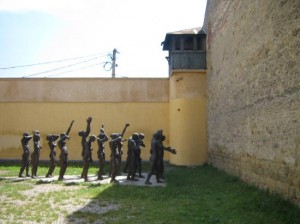
Romania, Sighet Communist Prison – memorial
*
Zenovie Pâclișanu, decedat în închisoarea din
Sighetul Marmației, membru corespondent al Academiei, autor de scrieri privitoare la istoria bisericească, fost profesor de teologie la Blaj (vezi Isabela Vasiliu-Scraba, Contextualizări. Elemente pentru o topologie a prezentului, Slobozia, Ed. Star Tipp, 2002, pp. 141-142, http://www.scribd.com/doc/130732402/IsabelaVasiliuScrabaContextualizari ).
2. Agenții Moscovei sunt numiți de Ion Varlam „membrii oligarhiei coloniale sovietice”. Ei apar descriși de istoricul și politologul format în capitala Franței ca „membrii nomenclaturii explicit însărcinați de Kremlin cu sovietizarea românilor” la care adaugă familiile acestora și clientela lor politică.
În România după 1944 ar fi venit circa douăsutedemii de sovietici de varii etnii cărora li s-a schimbat identitatea dându-li-se nume românești.
Agenții responsabili cu rinocerizarea ar fi fost în comunism „strategii terorii intelectuale” și ar constitui „și astăzi clasa dominantă din România, elita de substituție…Nu este o minoritate etnică ci o minoritate imperială, de tipul celei pe care o alcătuiau până în secolul XIX ienicerii, necondițional ascultători față de stăpân, care se asigură de fidelitatea lor prin situația privilegiată pe care le-o oferă sau le-o îngăduie să și-o creeze după bunul plac” (Pseudoromânia, 2004, p.67).
AUTOARE : Isabela Vasiliu-Scraba
IsabelaVS-RinocerizareaFaraNote/ 19oct 2015/14495car./ 2111cuv.
Cuvinte cheie : „elita de substituție”, „corespondența lui E.Tape”, „istorici burghezi întemnițati”, „Isabela Vasiliu-Scraba”, „rinocerizarea istoricilor comuniști”.
Sursa https://isabelavs2.wordpress.com/isabelavs-rinocerizarea/
 SHORT BIO: Solomon ben Yehuda ibn Gabirol AVICEBRON was an 11th-century Andalusian poet and Jewish philosopher with a Neo-Platonic influence. He published over a hundred poems, as well as works of biblical exegesis, philosophy, ethics and satire.
SHORT BIO: Solomon ben Yehuda ibn Gabirol AVICEBRON was an 11th-century Andalusian poet and Jewish philosopher with a Neo-Platonic influence. He published over a hundred poems, as well as works of biblical exegesis, philosophy, ethics and satire.
